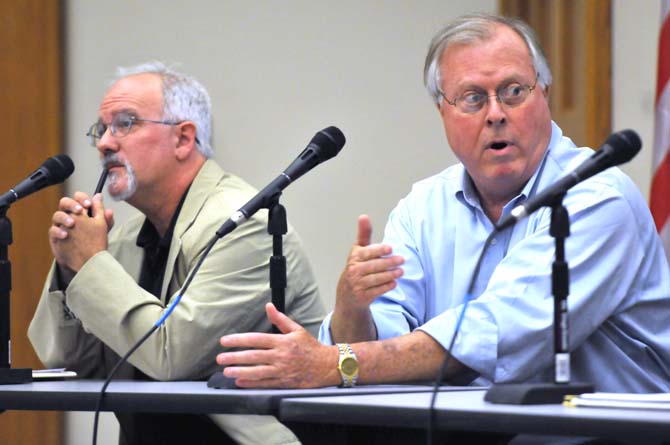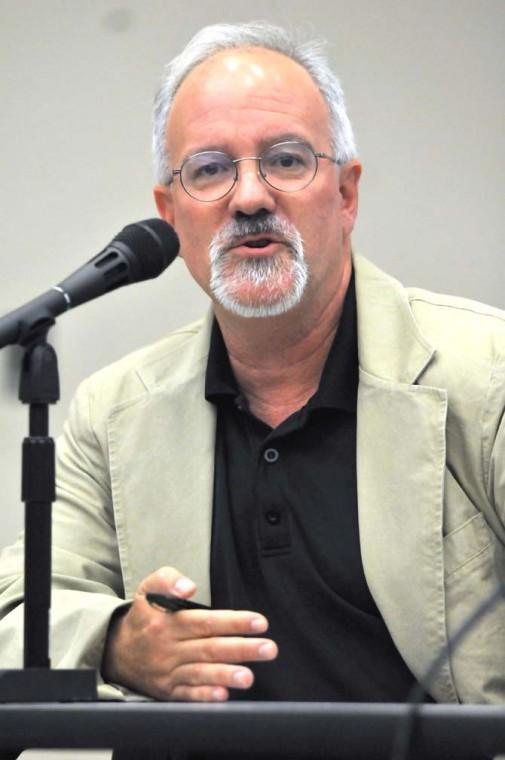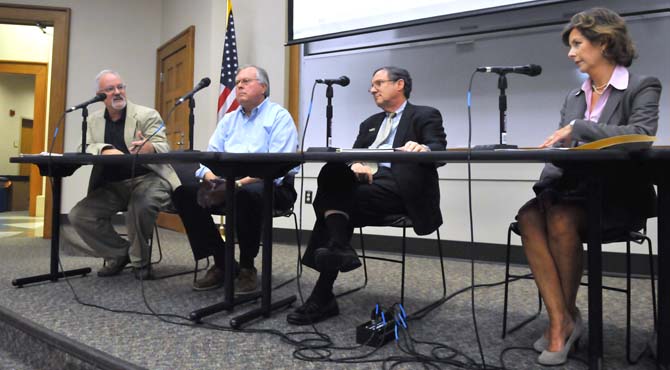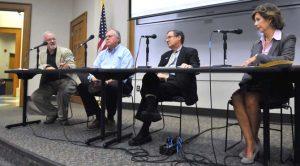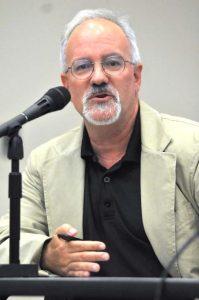The United States will have to lead the world in energy conservation if anything is to improve, panelists asserted at an environmental forum Thursday, the fifth in a series of six concerning issues in the presidential election.
It’s possible to moderate energy use as a nation, but the United States can’t conserve or drill its way out of it, said Dean of the School of the Coast and Environment Environmental Christopher D’Elia.
D’Elia said both sides of the presidential race could benefit from being honest about environmental facts, primarily recognizing that there is no way to generate energy without environmental impact.
“There are always going to be trade-offs,” D’Elia said.
University Coastal Restoration and Enhancement through Science and Technology Director Doug Daigle and Professor Emeritus Ed Overton agreed with D’Elia that there is no simple answer to environmental safety that keeps costs down.
Daigle said one way government can help with environmental safety is through regulation.
“Smart environmental regulation can be like stop signs and red lights—if you don’t think we need them, that’s naive—but they can be in the wrong place,” Daigle said.
President Barack Obama’s administration’s environmental policies are a step in the right direction, he said.
“The things Romney proposes could reverse much of what Obama has accomplished so far,” Daigle said.
Obama has used a scientific approach, while Romney’s potential policies are based on an assumption that unlocking certain oil-rich areas would bring prices of natural gas down, Daigle said.
D’Elia concurred with Daigle, saying it used to take one barrel of oil to extract 100 barrels. Now, the number is closer to 20 barrels for every barrel used, and in some cases, the ratio is closer to 1:1, with greater difficulty of natural gas extraction.
The United States’ power grid, however, is set up to run on cheap oil right now, D’Elia said, and the right investments would be helpful.
“The big question is whether the government do that,” he said.
Overton spoke about the potential of oil production not working out in the future.
“How would you like to pay three times more in tuition?” Overton asked the students, referencing the fact that much of the University’s money comes from Louisiana’s oil production.
Overton also asked what residents would do if Louisiana’s government didn’t take steps to diversify the economy.
“We could move to Texas. I don’t like Texas,” Overton said, laughing.
Overton also brought up global warming, specifically why the state is building a new hospital in New Orleans if it will be underwater in 50 years.
“I guess we could move to higher ground. Covington or somewhere could be the new New Orleans,” he said.


